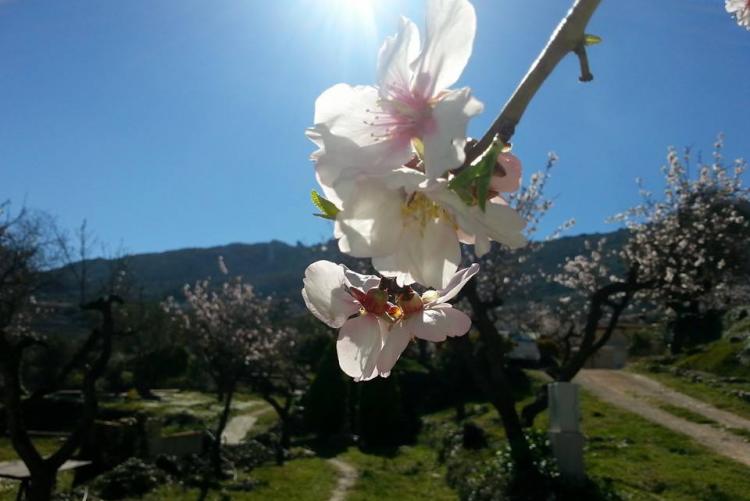1) Non-Judgment: impartial witnessing, observing your evaluations and categorizations
Noticing the automatic habit of labeling everything we experience as good, bad, or neutral.
The habit of judging locks us into mechanical reactions that we are not even aware of and often have little objective basis.
By becoming aware of your judgments you can choose actions and behaviors more consciously rather than automatically reacting to situations in your environment.
This principle will be useful as you start to engage in new mindfulness practices that your mind may judge as boring or waste of time and as you extend your boundaries outside of your comfort zone to learn about personal branding and new technologies to communicate your brand.
2) Patience: allowing things to unfold in their time, bringing patience to ourselves and others
This is an understanding that sometimes things must unfold in their own time.
This principle reminds you to be patient with yourself as your mind is stretched in new ways
Patience is a helpful quality to invoke when the mind is agitated. To be patient is to be open to each moment as it unfolds knowing that like the butterfly that some things can only unfold in their own time. So when starting out your mindfulness practice or anything else please stick through whatever takes place trusting that some things will make more sense after you have practiced them for a while and at the same time please seek support from me or other group members if need be.
3) Beginner’s Mind: willing to see things as if for the first time.
We let our beliefs about a situation prevent us from seeing things as they really are.
No moment is the same as any other.
Beginner’s mind allows us to be receptive to new possibilities and prevents us from getting stuck in our mind, which often thinks it knows more than it actually does.
Try to cultivate your own beginner’s mind as an experiment. The next time you see someone familiar notice if you are seeing the person with fresh eyes or through the lens of your beliefs about that person. If you encounter a new activity you need to do for this class, notice if you are open to trying it out fully or have you already decided before doing it that you don’t like it. When you are out in nature or walking to work, see if you are noticing things you had overlooked before. Developing beginner’s mind opens you to possibilities in life you may be missing out on because you are viewing everything through the lens shaped by past experience that is not aware of what else there is to learn and explore.
4) Trust: developing trust in your feelings and yourself is an integral part of the mindfulness practice.
The act of trusting yourself and your basic wisdom is an important aspect of the mindfulness training.
If you are feeling strongly about something it is important to attend to that rather than ignore because an outside authority is telling you to do so.
Mindfulness is an objective process of inquiry and even accepting what teachers and people of authority tell you without questioning the validity of it for yourself is against the basic premise of mindfulness.
It is important to stay open and learn from other sources but ultimately you have to live your life and make your choices that feel right to you.
It is almost easier to trust external authorities to tell us how to live our lives. Mindfulness involves practicing trusting your own feelings and that doesn’t mean you react based upon all your feelings but that you explore any feelings that show up fully to see what they are telling you about a situation and then you trust yourself to come up with the right action.
5) Non-striving: non-goal oriented, remaining unattached to outcome or achievement
Even though everyone undertaking mindfulness practice has some goals intentions why they are taking this training, at the time of mindfulness practice itself, simply do the practice without any expectations.
When you set expectations such as feeling more relaxed or getting better grades right before your meditation, you are introducing conditions that don’t allow you to be fully present with what is because you are trying to change the present to be something else. If you are trying to change the present then you are not being with what is, which is what the mindfulness training is.
Remember to allow anything and everything that you experience from moment to moment to be there, because it already is. If you are tensed, just pay attention to the tension. If you are criticizing yourself, just observe the activity of the judging mind.
Non-striving may the most difficult out of all the principles because in our culture we are taught to be goal-oriented and to be constantly doing something in order to reach our goals. In mindfulness you will reach your goals by not trying to change the present but by being present to what ever arises and in that being you will find that the goals are ultimately reached. This is perhaps something you will need to experience for yourself to really understand what I am saying.
6) Acceptance: open to seeing and acknowledging things as they are. It does not mean approval or resignation.
Acceptance is the willingness to see things as they really are.
Acceptance does not mean that you have to be satisfied with the way things are or that you don’t do anything to change what you don’t like.
When you have the ability to see things as they are you free up energy to take the appropriate actions instead of working with a mind that is clouded by denial, prejudices, fears, and self judgments.
7. Letting Be (rather than letting go): non-attachment and the ability to put aside the tendency to elevate some aspects of our experience and to reject others
Letting go is a way of letting things be, of accepting things as they are.
When you observe your mind grasping or pushing away, you can remind yourself to let go of the impulse to grasp or push away and see what happens.
If you can’t let go, try the opposite of really holding on and seeing what that feel like. By looking at how you hold on you will learn how to let go.
Letting go is something you naturally do when you sleep. If you have trouble sleeping then it could be because you are not able to let go.
Letting be is helpful as you engage in different mindfulness practices that your mind judges to be boring and you want to avoid doing the practice or you will be judging yourself.. With the attitude of letting be you are simply noticing your natural tendencies and doing what you need to do in that moment.
8. Self-compassion – this quality of awareness cultivates love for yourself as you are, without self-blame or criticism. Compassion occurs when “the heart quivers in response” to the suffering of another, giving rise to the wish to alleviate that suffering. We can bear witness to our own pain and respond with kindness and understanding, instead of blaming, criticizing and trying to fix ourselves (or someone else, or the whole world) when things go wrong and we feel bad, we can start with self-acceptance and Compassion. This simple shift can make a tremendous difference in our life. Self-kindness is the opposite of self judgement.
- Log in to post comments






















